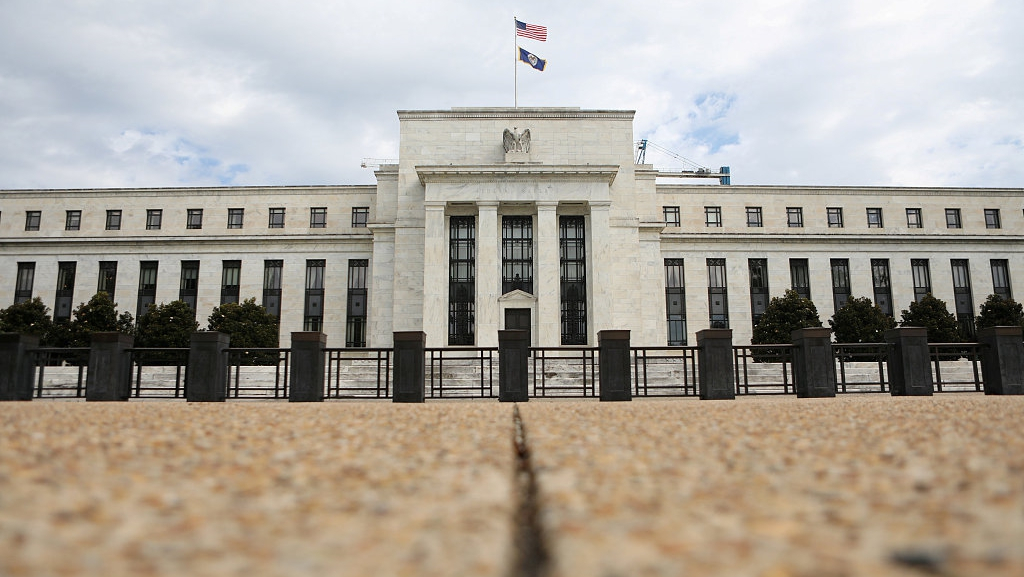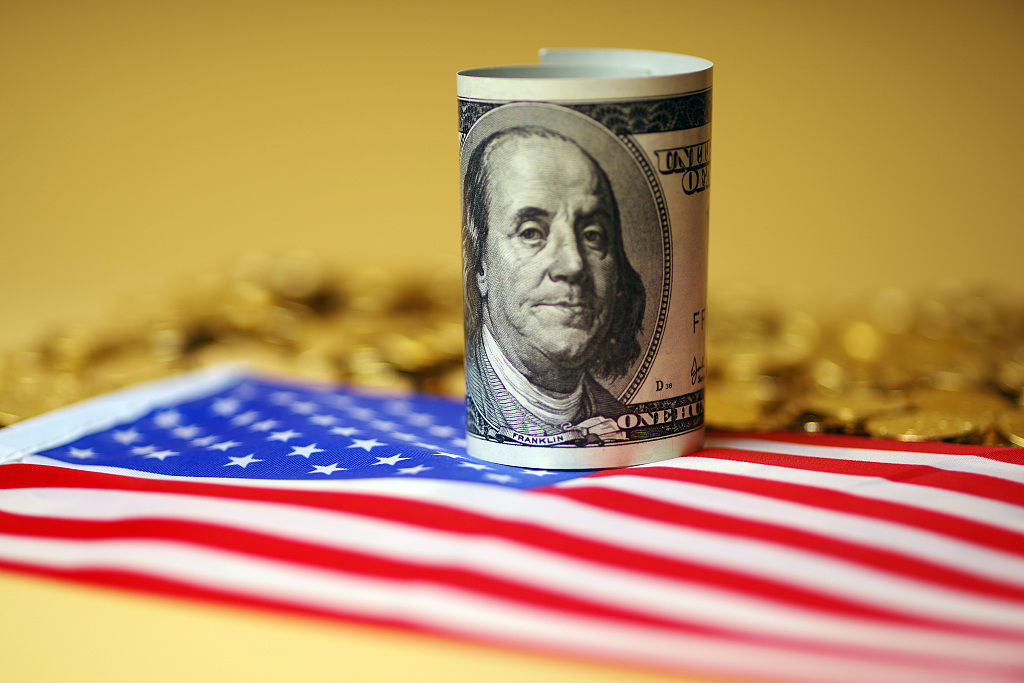01:27

U.S. Federal Reserve on Wednesday lowered interest rates by 25 basis points amid growing risks and uncertainties stemming from geopolitical tensions and a global economic slowdown, following a rate cut in July that was its first in more than a decade. Asian markets mostly rose Thursday after the interest decision of the Federal Reserve.
"If the economy does turn down, then a more extensive sequence of rate cuts could be appropriate," Federal Reserve Chairman Jerome Powell said in a news conference after the Fed announced it had lowered its benchmark overnight lending rate by a quarter of a percentage point to a range of 1.75 percent to 2 percent.
Trump blasted Powell, saying the central bank chief had "No 'guts', no sense, no vision!"
"A terrible communicator," Trump tweeted before Powell had even begun his news conference.
U.S. stocks, lower ahead of the statement, extended their losses and the U.S. Treasury yield curve flattened. The 10-year Treasury note yield US10YT=RR inched up to 1.79 percent.
01:41

For market reactions to the Fed's rate cut – U.S. stocks reversed earlier losses to close higher on Wednesday. The initial losses were believed to be resulted from markets' view that the rate cut fell short of an expected more aggressive reduction.
Asian markets mostly up but Fed leaves traders seeking more
Tokyo's Nikkei was up more than one percent ahead of the announcement but pared the gains in the afternoon to end 0.4 percent higher as the yen rallied against the dollar.
Shanghai rose 0.5 percent, Sydney and Seoul were each up 0.5 percent, Singapore added 0.1 percent and Wellington gained 0.2 percent.
However, Hong Kong, which has struggled all week under the weight of concerns about the impact on the economy of long-running, sometimes violent protests in the city, fell more than one percent.
Taipei, Manila, Mumbai, Bangkok and Jakarta also fell.
While the Fed met expectations with a 25-basis-point reduction, the lack of strong forward guidance disappointed many, who were also concerned about a growing split in the policy board between hawks and doves.
Edward Moya, a senior market analyst at OANDA, said the Fed could regret its decision to not be more forthright.
Its "lack of conviction in signalling more rate cuts will probably be a policy mistake that is wasting the effectiveness of the first two rate cuts", he said in a note.
"The Fed seems set on waiting for a couple geopolitical risks to rattle the economy before committing to a full-fledged easing cycle."

Data showed that U.S. purchasing managers' index (PMI) in August was 49.1 percent, a decrease of 2.1 percentage points from the July reading of 51.2 percent, contracting for the first time in three years.
And 130,000 jobs were added in August, fewer than expected, along with the unemployment rate remaining at near-historic low of 3.7 percent.
Saudi Arabia's Energy Minister Abdulaziz bin Salman Al Saud said Tuesday that Saudi oil production would be fully restored by the end of September as the country had dipped into its stored reserves, and oil production capacity will rebound to 11 million barrels per day (bpd) by then.
The Fed lowered the interest rate to 0.25 percent since the 2008 global financial crisis and has since held rates near zero for seven years. It has also continued a move toward a policy normalization that began in 2015 until July 31 this year.
During the first rate reduction since 2008, Powell cited that "through the course of the year, weak global growth, trade policy uncertainty, and muted inflation have prompted the FOMC to adjust its assessment of the appropriate path of interest rates."
(With input from AFP)